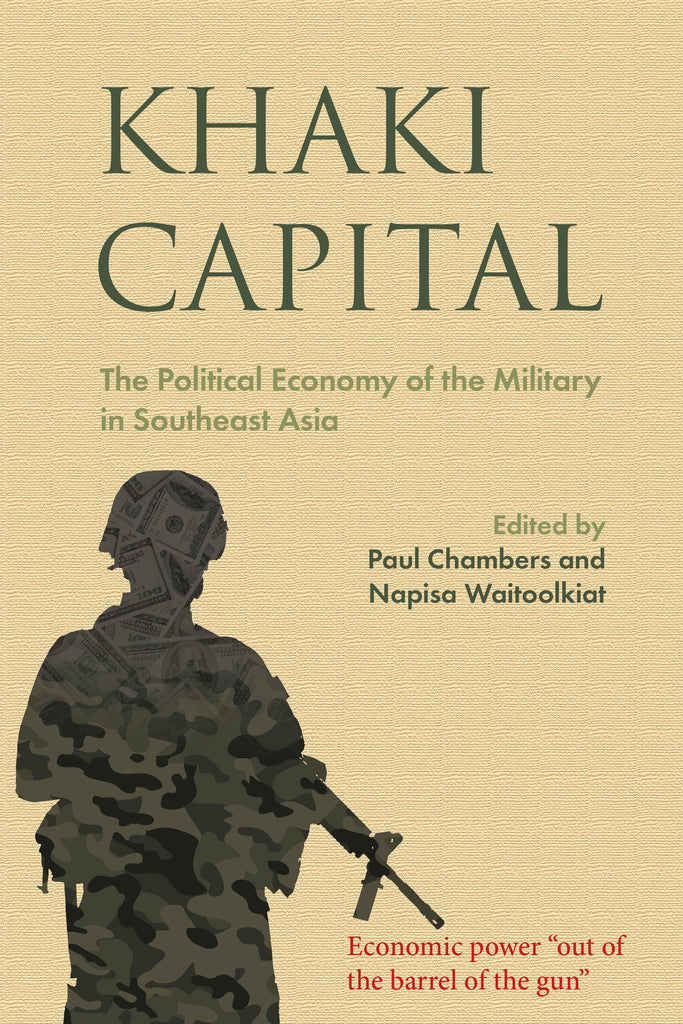Khaki Capital: The Political Economy of the Military in Southeast Asia
$38.00 SGD
edited by Paul Chambers and Napisa Waitoolkiat
Although Southeast Asia has seen the emergence of civilian rule, the military continues to receive a large chunk of national budgets and, with significant assets and economic activities, often possesses enormous economic clout – thus enhancing its political power while hindering democratization or civilian rule. The political economy of the military in less developed countries is thus a crucial subject area in terms of democratization.
This study examines such 'khaki capital’ in seven Southeast Asian countries – Thailand, Myanmar, Vietnam, Laos, Cambodia, the Philippines and Indonesia. Each chapter analyses the historical evolution of khaki capital in a given country; the role of internal and external factors (e.g. military unity and globalization) in this trajectory; and how the resulting equilibrium has affected civil– military relations. This study is important for understanding how and why military influence over parts of the economy in Southeast Asia continues to impede the achievement of civilian control and democratization. Ultimately, this book tells the story of how militaries in Southeast Asia have benefitted economically and the extent to which such gains have translated into the leveraging of political power.
“Editors Paul Chambers and Napisa Waitoolkiat bring to the body of literature an important book that examines a phenomenon often discussed but seldom defined convincingly, precisely due to the complex environment of Southeast Asia” - Eddie Lim, Pacific Affairs
Paul Chambers lectures at the College of ASEAN Community Studies, Naresuan University, and is a research fellow at the Cambodian Institute for Cooperation and Peace and the Peace Research Institute Frankfurt. He has written extensively on security sector reform, democracy and peace studies, especially in Southeast Asia.
Napisa Waitoolkiat is Director of the College of ASEAN Community Studies, Naresuan University. Her research focuses upon emerging democracies in several areas including electoral politics, civil–military relations, political accountability, corruption, democratization, and human security in Southeast Asia.
Publication year: 2017
367 pp / 229mm x 152mm
5 maps, 5 figures, 16 tables
ISBN: 978-87-7694-225-0, Paperback
ISBN: 978-87-7694-224-3, Hardback
NIAS Press

